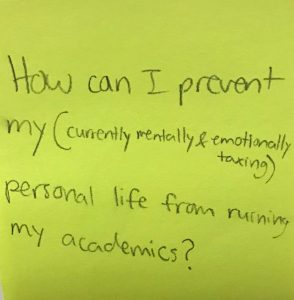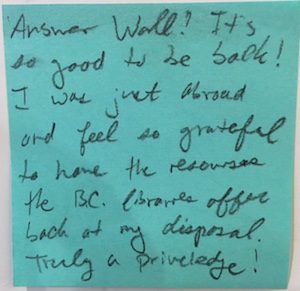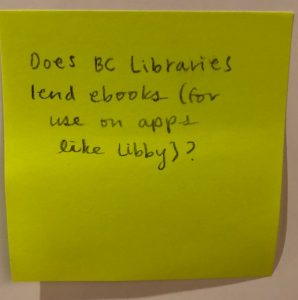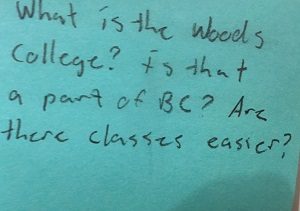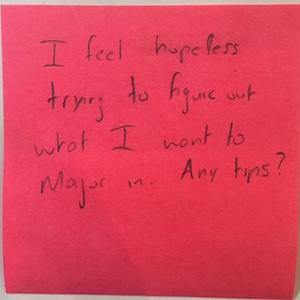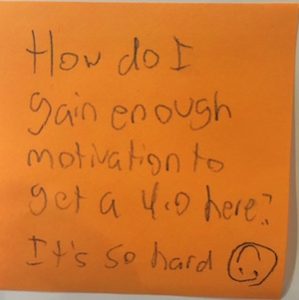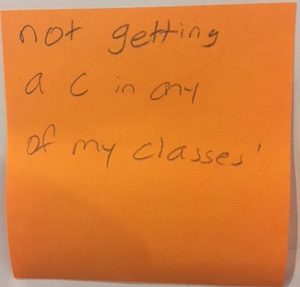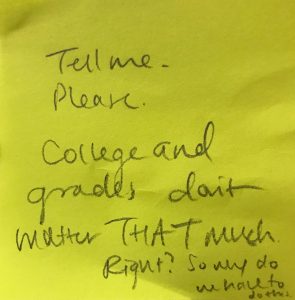
I hear your frustration. College is only 4 years out of a long life, and grades should really just be a way of ascertaining that you’ve “got it” about a subject, not the goal. On the other hand, college gives you opportunities you may not have again in life, to learn intensively and follow a path of study that interests you. Grades may or may not matter for your career goals, so there is some risk in ignoring that aspect, I hope you can focus on the core learning and growing part of your time here.

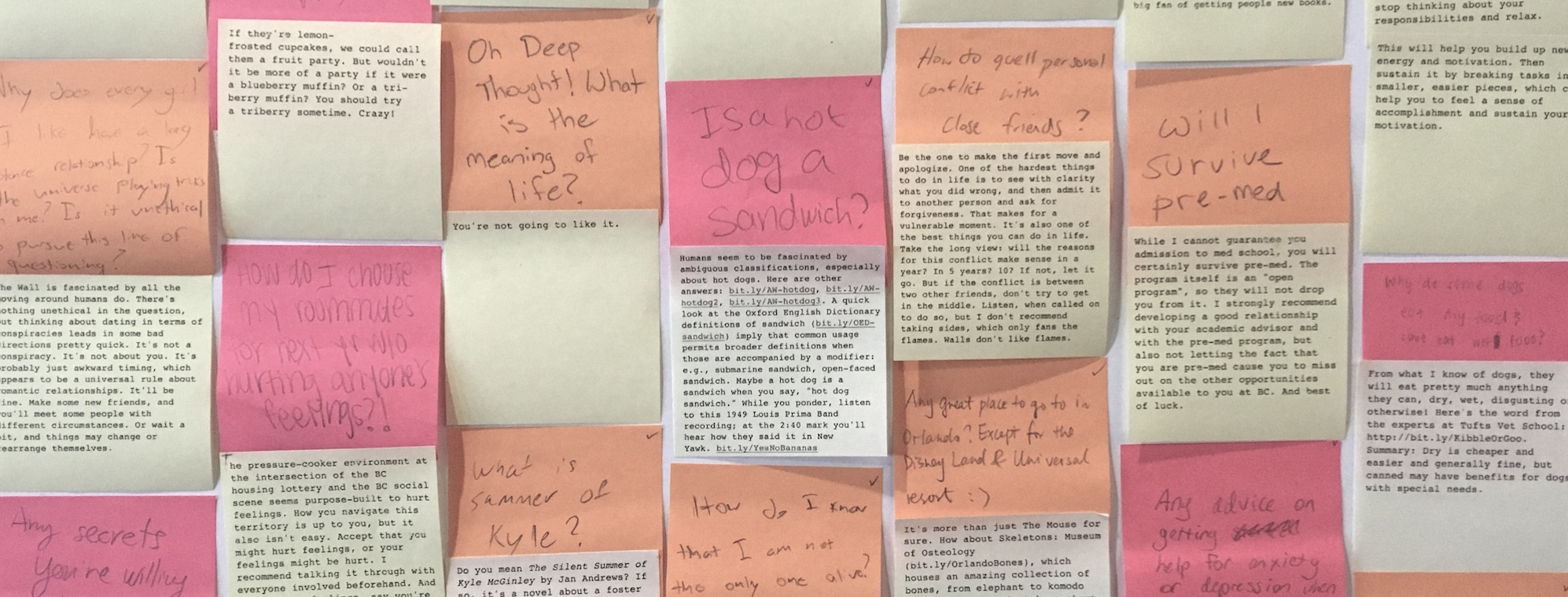
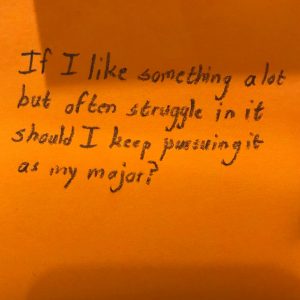
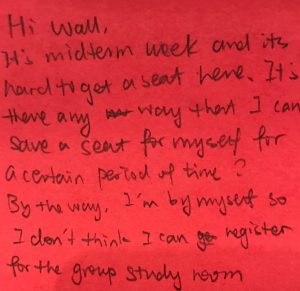

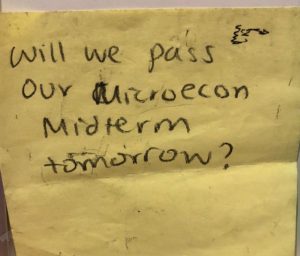


![学习太好了! 怎么办? (My studying is so great! What do I do?) Become a stripper Go [redacted] a [redacted].](http://library.bc.edu/answerwall/wp-content/uploads/2018/02/aw021518-redactionquestion-289x300.jpg)
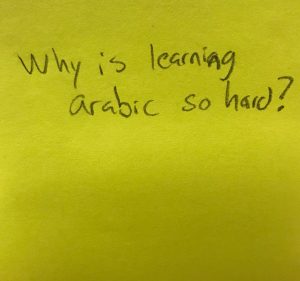
![[in Chinese] I have a lot of math homework. What should I do? :)](http://library.bc.edu/answerwall/wp-content/uploads/2018/02/aw020718-6-300x300.jpg)
![[In Chinese] It is hard for me to study. What should I do?](http://library.bc.edu/answerwall/wp-content/uploads/2018/02/aw020718-5-300x291.jpg)

